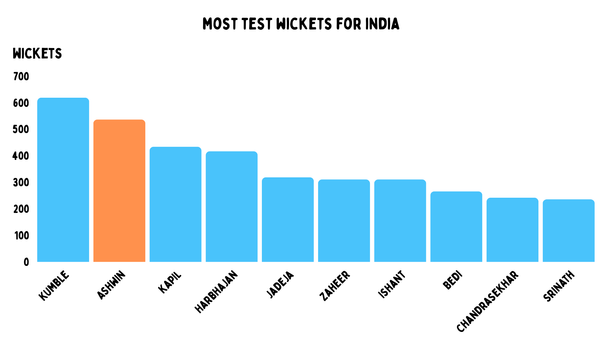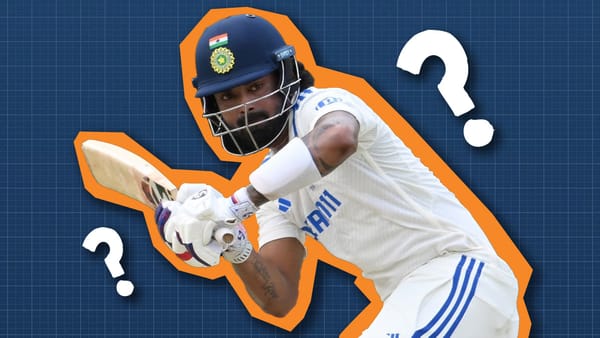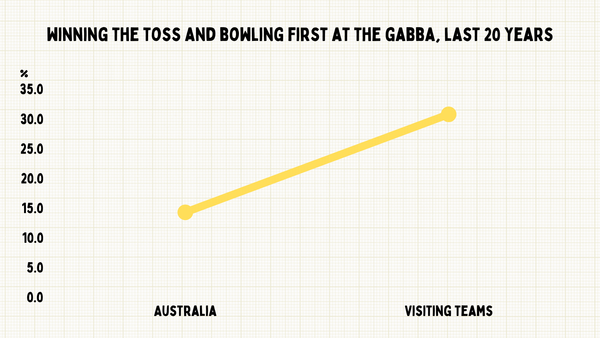John Reid did everything for New Zealand cricket
A player who was better than his numbers because he laid the foundations for something incredible.
Based on his numbers, John Reid was not one of the greatest cricketers ever. You will not find him in your all-time XIs, and if you hadn’t heard of him before, when you saw his batting average of 32 and bowling of 33 you weren’t blown away. That’s a good solid Test bowler who can bat a bit.

You don’t see that many players with Reid like records playing 59 Tests in major established Test nations. That is because what I have lovingly referred to as the Pringle Botham continuum.
“It’s not that Pringle was a poor Test all-rounder, he did more or less what you would have expected of him, was just below average with the ball, while strengthening the tail with the bat. Yet, he was a punchline. Because in all-rounders you’re either a great or nothing. There are no middling all-rounders.”
But players like Reid exist in certain teams a lot, developing nations.
I worked for the Scotland team during their T20 qualifiers. I was impressed by the talent of some teams. I saw back of the hand superstars from Singapore with dad bods, Qatari knuckleball champs and PNG were one of the best fielding units in the world. But I also saw something else. There are still too many all rounders.
It’s hard to find proper all rounders in the higher level of cricket, because it’s hard to get into a top level team and be in the nation’s best four bowlers or six batsmen. That’s not the case as much first class cricket or in associate cricket. Almost every team has a player who can bat top six and is a high use bowler for their team. Some have several. You might get a team like England or South Africa with a wave of all rounders, but even then, how many of them are frontline choices as batsmen and bowlers.
I love Peter Borren, Collins Obuya and Trent Johnston. But those are players who have taken some skill with an incredible will to compete and turned themselves into cricketers that their team needs for almost every situation.
If you told Borren he had to smear himself naked in peanut butter and wrestle an entire family of Alaskan Peninsula brown bears who'd been starved to get a breakthrough for the Netherlands, he’d do it.

Early Test teams have these kinds of players too, Aubrey Faulkner, Shakib Al Hasan, Vinoo Mankad and Heath Streak. They end up doing everything because they have too.
John Reid was that kind of player. He knew his team wasn’t any good, because he was good, and he had eyes. In 58 Tests he won three. And that was without him ever playing against one of the best teams, Australia. You want more, they scored at 2.02 runs an over during his career, they averaged 21 with the bat, and in those Tests, New Zealand players scored 20 Test centuries, England scored 18 in their 19matches against them. Reid’s career finished before they ever won a series, a feat that took them 39 years to achieve.
Here is how they fared when you looked at their run differential during his career.

They were twice as bad as the second worst team. They were losing 15 runs for every wicket they took. Oh, and if you think I am being unfair, here is Reid on that period, “I used to tell some terrible lies - how we are going to win this one and win that one, knowing damn well that we wouldn’t.”
And so Reid did everything he could to improve his team. He batted everywhere from three down to six. Because if there was a hole in the order, he stepped up. Looking at his numbers, he would have been a very good number six for a quality team. But that wasn’t an option. He batted second drop for a team with historically bad openers in a country which is the hardest to open in the world. Meaning instead of coming in at six when his team had a few runs on the board to unleash those powerful drives of his, he was in early, on a seamer, and hoping for the best.
Then there’s his bowling. Reid could bowl seam or spin. But it’s his spin that was most interesting, as it was under-used. Reid bowled in the fourth innings of Test matches 11 times in 58 Tests. In those 11 fourth innings he averaged 16 with the ball. That is ofcourse a stupid good number and it comes from only 14 wickets, but there is a reason it was so few. Often New Zealand was defending less than 100 to win. But mostly they never made the opposition bat twice.
In his entire career, he bowled 7725 Test deliveries. Only 21% of them were in the second team innings. So over 6000 were in the first, where he averaged 37. New Zealand had a potential last innings threat, and he bowled in the second innings in a third of his Tests.
In first class cricket Reid averaged 22, in Tests he bowled 22 overs a match (the same as Kallis), and yet the single thing he was most useful for went unused, purely because his team wasn’t good enough. He batted too high and didn’t bowl when it mattered. And John Reid was first chosen for New Zealand as a wicket keeper.
Reid learnt his cricket on a concrete wicket at a park, had to take time off from working at a service station to play while carrying his entire nation with bat, ball, and one time, gloves.
That is not a Test all rounder, that’s a club cricket stalwart who has no social life. Neville Cardus once referred to him as “a club cricketer in excelsis”. When he retired from Tests he was New Zealand's all-time leader in runs, wickets and outfield catches. This despite the fact they had been playing for 35 years. They had other players in his era, but he carried them for an entire generation like perhaps no other cricketer has in Tests.
Bert Sutcliffe was probably a better player than Reid, but he never recovered from being hit by Neil Adcock. Glenn Turner was their first true professional. Richard Hadlee and Martin Crowe were Test greats. Reid wasn’t on their level in terms of numbers, but on impact, I don't know if anyone is bigger.
Look at New Zealand cricket today. Kane Williamson isn’t pumping gas between series, he doesn’t have to prepare on concrete wickets against club cricket hopefuls and they have made the last two World Cup finals while being second on the Test rankings. But more importantly, they’re a major part of international cricket.
John Reid is not a great because of his numbers. John Reid is a great because of everything New Zealand has achieved because of him.
If you want to know about cricket history, it is worth listening to my podcast on the history of cricket, Double Century. Especially as the new season is just about to drop.



